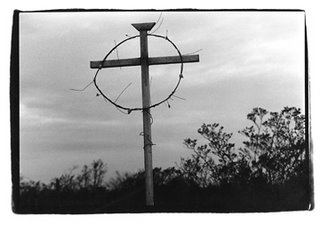I'm planning to join you this Summer at camp if you have a counselor vacancy. I wish you'd do something like that in the winter. It would be great to get to the Southwest in February or March.
Well Mark, we've touched on a lot of stuff but it's just the tip of the iceberg. Houston folks should get involved with your organization. How can they contribute?
That's a very important question. Not just for Houston Institute for Culture, but for all people and organizations that are trying to implement proactive solutions for the future. I think we need visionary people who see past the ongoing crises and truly intend to change the world to become involved. There isn't any shortage of ability, but there is a shortage of people who think they can make a difference or even see the relationship of problems around them to their own lives.
I understand the activist experience, chasing after one injustice after another, but I think it is important to approach the multitude of issues more proactively. It's a great design of people who make self-serving policies to always have others reacting to the problems they create, rather than working toward better futures.
I always describe the organization as one that is more concerned with the ability of the forest to grow rather than the many views about what the trees should look like or how they should be managed. Those are issues for people who have the luxury of having a forest. So we are a grass roots organization in several senses, in that we know it is critical to work on the limited sources of many problems, and we won't fall victim to the notion that social innovation is limited to business and community leaders recognizing the necessary role of businesses in providing greater support to communities due to the imbalances they have created, but that people in communities should be more conscious of which businesses they support and more empowered to make important changes to the world just by the impact they have in their locality. And we are highly idealistic in thinking about what truly is the middle rather than the divided sides of policies and the tremendous imbalances of wealth and equality.
On a more practical level, we need people who can help with fundraising because we do want to offer great service projects to help children develop their ideas, like Camp Dos Cabezas and Camp Chaco, and digital storytelling classes in schools and native communities, and some redevelopment projects in the near future for young minds in the border colonias and in New Orleans.
Strangely, we need more of what successful businesses have: committed, talented people who don't quit until they accomplish what they set out to accomplish. But we need them to understand that the rewards are different. And they don't have to be in Houston; they can be anywhere in the world.
More to come, more fotos more q's for Mark Lacy.



No comments:
Post a Comment